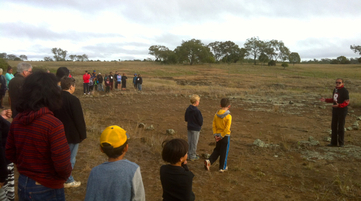
‘Come out from behind that thing!’ – the Aboriginal elder’s voice rang out powerfully as I was about to begin the Decade to Overcome Violence launch in Alice Springs. She was objecting because I was behind a lectern: another whitefella, as it were, standing over or apart from her. As it happened, in what followed, every blackfella who spoke also headed behind the lectern. I guess therefore it was probably that elder’s own personal issue. Yet I have never forgotten it. For, in a way, following feminist pioneers, it was a lived experience of what Indigenous scholars (such as Denis Foley, Martin Nakata and Aileen Moreton-Robinson) call ‘standpoint theory’.
Standpoint theory is a postmodern method for analysing inter-subjective and ethical discourse. For a standpoint is a place from which one sees the world. It thus helps direct both what we focus on as well as what is obscured. The specific circumstances of our standpoint then determine which concepts are intelligible, which claims are heard and understood by whom, and which reasons and conclusions are understood to be relevant and forceful.
Now, like any approach, standpoint theory is not without weaknesses. It risks, for example, generalising the experience of different peoples, and it risks suggesting an overly ‘essentialist’ character of particular genders, races, or other identities. Yet it is a powerful means in which marginalised groups can challenge the status quo. Indeed, as the feminist theorist Sandra Harding put it, it helps create ‘strong objectivity’, or strong inter-subjectivity. For when the perspectives of the marginalised and/or oppressed are included, we have more objective, or deeper inter-subjective, accounts of the world. This is vital to a richer, and more life-giving, ethics.
Spiritually speaking, standpoint reflections also lead to a richer ethical and doctrinal expression of Pentecost. For, in Pentecost, the Spirit of God is embodied, enlivened, and expressed through all created voices. As God’s voice puts it, through the prophet Joel, in our first reading tonight, ‘I will pour out my spirit on all flesh’: on old and young alike, male and female, not least slaves; and, the passage goes on to say, also through the more-than-human environment, by ‘portents in the heavens and the earth.’ True Pentecostal experience, it seems, is about true inter-subjectivity. All creation’s standpoints are voiced, held together, and contribute to the whole. Pentecost is thus a basis for a holistic, fully environmental, ethics. For Pentecost is so much more than we have often made it...

 RSS Feed
RSS Feed